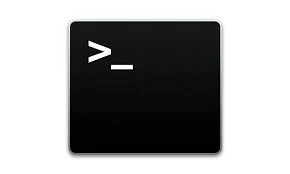Bash Shell
The bash shell :-
a
command line is a text-based interface which can be used to input
instruction to a computer system. The Linux command line is provided by a
program called the shell. over the long history of UNIX OS
like system, many shells have have been developed. the default shell
for users in Enterprise Linux is the GNU Bourne-Again Shell(bash). Bash
is an improve version of one of the most successful shells used on UNIX
like system, the Bourne Shell (sh). when a shell is used interactively, it display a string when it is waiting for a command from the user. this is called the shell prompt.
Example
sarha@batman:~$
Note:-
sarah is current login user.
batman is a host name.
~ (tild) its shows present working directory.
and the next is user type this is two type are follows.
Identify user type in shell :-
Type 1 : $
When a regular user starts a shell, the defaults prompts ends with a $ character
sarha@batman:~$
(This is my terminal which is login in sarah user)
this symbol is show your are login in local user or sub-user. this type of user are not given to full access of system.
Type 2 : #
The $ is replaced by a # if the shell is running as the superuser, root. This makes obvious that it is a superuser shell, which helps to avoid accident and mistakes in the privileged account.
 |
| # shell |
using bash to execute command can be powerful.
The bash shell provides a scripting language that can support
automation of task. The shell has additional capabilities that can
simplify or makes possible operations that are hard to accomplish
efficiently with graphical tools.
shell basics :
commands entered at shell prompt have three basic parts:
- command to run
- options to adjust the behavior of the command
- Arguments, which are typically targets of the command
Note :-
The
bash shell is similar in concept to the command line interpreter found
in recent versions of Microsoft Windows cmd.exe , although bash has a
more sophisticated scripting language. it is also similar to windows
Power Shell in windows 7 and windows server 2008 R2.
